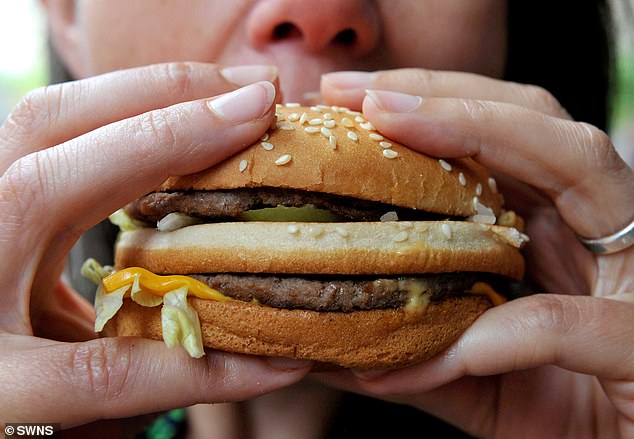Calorie information was added to menus to encourage punters to make healthier food choices.
But it only cuts intake by the equivalent of two almonds per meal, a major review has found.
Under laws that came into effect three years ago, outlets with more than 250 workers – including cafes, restaurants and takeaways – are legally required to provide calorie information for non-prepacked food and soft drinks.
But the most extensive real-world findings to date suggest the policy is ‘no silver bullet’, with an average reduced intake of just 11 calories per 600-calorie meal.
Experts described the results as ‘modest’ but ‘meaningful’ in the long-term, while acknowledging it saved the average diner around ‘half a Kit-Kat finger’ in calories.
But critics have suggested it lets the industry ‘off the hook’ in tackling the nation’s obesity crisis. And charities have warned it could fuel eating disorders.


A research team from universities including Oxford, Cambridge and UCL analysed the impact from 25 studies involving more than 10,000 people from the UK, US, Canada and France.
The labels – also on supermarket meals – led to a 1.8 per cent reduction in calories selected and 6 per cent fall in calories consumed, according to the findings published in the Cochrane review.
Dr Gareth Hollands, from UCL, said: ‘Our review suggests calorie labelling leads to a modest reduction in the calories people purchase and consume.
‘This may have some impact on health at the population level, but calorie labelling is certainly no silver bullet.’ Eating out is widely regarded as one of the key drivers of obesity in this country, with data suggesting it contributes an average of 300 calories daily per person.
A Government report estimated 90 per cent of 20 to 40-year-olds in England would gain up to 9kg over ten years. Reducing daily intake by 24 calories per day, around one per cent of the recommended level for adults, would prevent this.
Dr Hollands said: ‘A quarter of a Kit-Kat or a few almonds would prevent this increase.’
But Tom Sanders, professor emeritus of nutrition, King’s College London, said: ‘It is debatable whether such a small change would have any impact on body weight in the long term.’
The rule was introduced in 2022 to help tackle rising obesity. But experts say more far-reaching measures are needed, such as curbs on advertising junk food and legislation to limit fat, salt and sugar content in takeaways.
